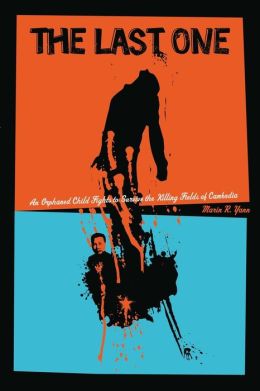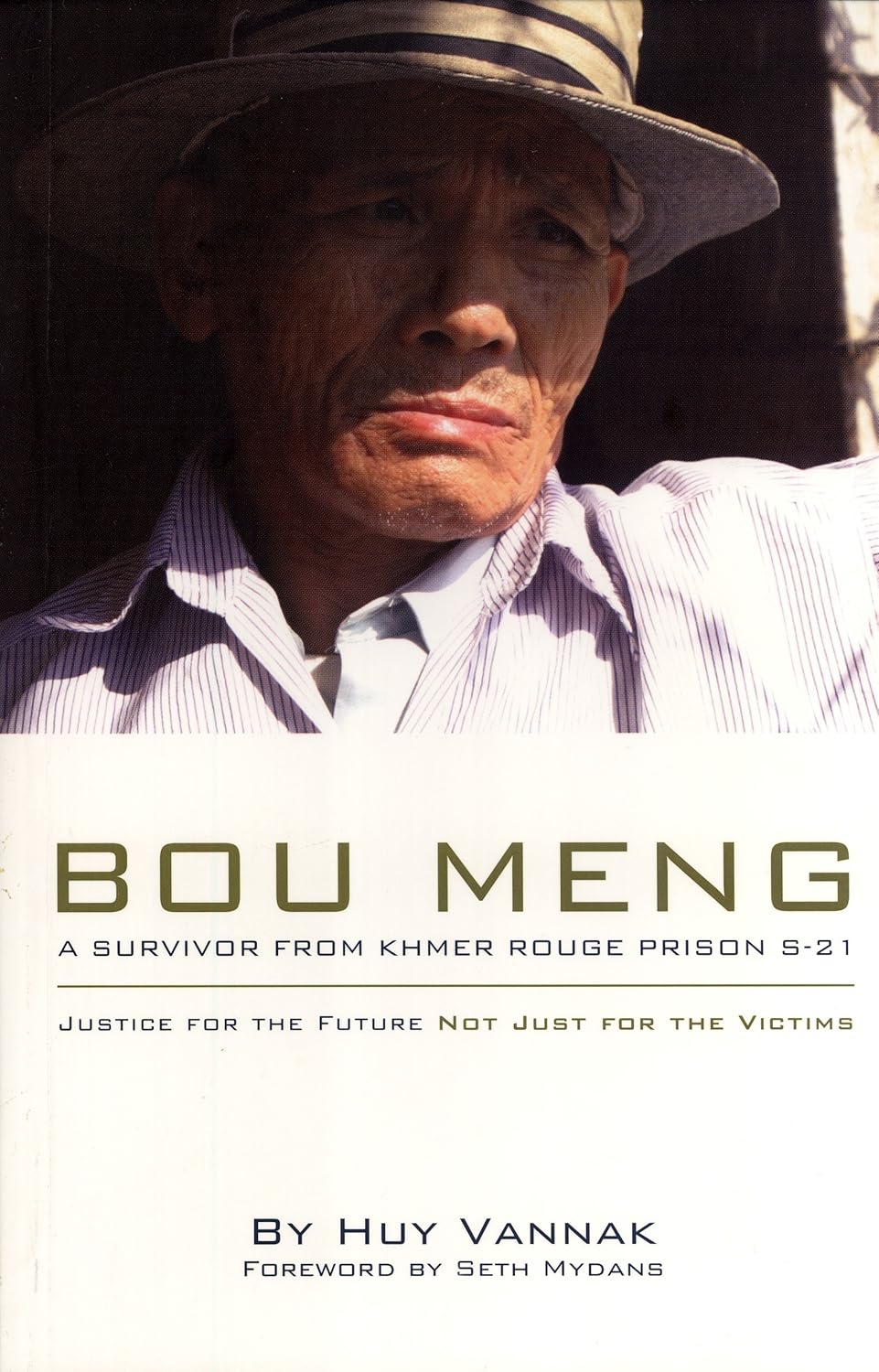The Documentation Center of Cambodia (DC-Cam) in Phnom Penh
enables research into the years 1975 – 1979, when the Khmer Rouge killed almost
two million Cambodians; its dual aims are to record the events of that time to
ensure they are not forgotten, and to bring the perpetrators of great crimes to
justice. The Center presently contains the world's largest archive on the Khmer
Rouge, holding over 1 million pages of documents and 6,000 photographs.
 Research undertaken by DC-Cam’s staff and volunteers has
resulted in the publication of many books, including history textbooks and
teacher-training materials for local use. But what about English-language books
for the international general reader? DC-Cam’s director, Youk Chhang,
recommends Bou Meng: a
survivor from Khmer Rouge Prison S-21, by
Huy Vannak, which is published by DC-Cam itself, and The Last One: an
orphaned child fights to survive the killing fields of Cambodia by Marin R. Yann, published by Outskirts Press, and available from their website,
http://www.outskirtspress.com.
Research undertaken by DC-Cam’s staff and volunteers has
resulted in the publication of many books, including history textbooks and
teacher-training materials for local use. But what about English-language books
for the international general reader? DC-Cam’s director, Youk Chhang,
recommends Bou Meng: a
survivor from Khmer Rouge Prison S-21, by
Huy Vannak, which is published by DC-Cam itself, and The Last One: an
orphaned child fights to survive the killing fields of Cambodia by Marin R. Yann, published by Outskirts Press, and available from their website,
http://www.outskirtspress.com.
If you happen to be in Phnom Penh you can buy Bou Meng direct from Bou Meng himself, at the Tuol Sleng Genocide
Museum, formerly the notorious Prison S-21 of the book’s subtitle.
Bou Meng is a
harrowing read. At least 16,000
people were imprisoned and tortured at S-21, of those sent there, only 14
people survived. Bou Meng was one of the 14; his life was spared because he was
an artist, and the regime needed him to paint portraits of the Khmer Rouge
leader, Pol Pot. Bou Meng, who in chapter 2 talks
directly to the reader through Huy Vannak’s translation, is unsparing in his description of
deprivation and torture, both mental and physical. This is typical:
The interrogator kept asking me the same questions. I replied with
the same answers. The interrogator grasped a bunch of torture materials,
including bamboo sticks, whips, rattans, cart axles and twisted electrical
wires. He asked me to choose one
of them. I did not want any of them because they were tools to hurt me. But I
did not have any choice.
Bou Meng’s wife, Ma Yoeun, was killed at S-21, and their
children also perished under the tyranny of the Khmer Rouge. Comrade Duch was
the Khmer Rouge official in charge of S-21. In 2009, a UN supervised trial of
Duch began at a Phnom Penh court; in 2010, he was found guilty of crimes
against humanity, torture, and murder. Huy Vannak reports that Bou Meng now
wants to hold a Buddhist ceremony: “to dedicate justice to the soul of his wife
and the victims of the Khmer Rouge. Then, he believes, their spirits will rest
in a peaceful place.”
Today, Bou Meng paints pictures drawing on his memories of life under the Khmer Rouge. Huy Vannak says: “He draws on his personal memories to paint a collective pain. He hopes his art will inspire the world to prevent a repeat of Cambodia’s painful past.”
In addition to books, Youk Chhang also recommends the movie A River Changes Course, directed by Kalyanee Mam, which follows three families in contemporary rural Cambodia as they struggle for survival, their livelihoods threatened by ever-increasing industrial
development: http://ariverchangescourse.com/
For further information, or to order DC-Cam’s publications, visit http://www.dccam.org/
For further information, or to order DC-Cam’s publications, visit http://www.dccam.org/

